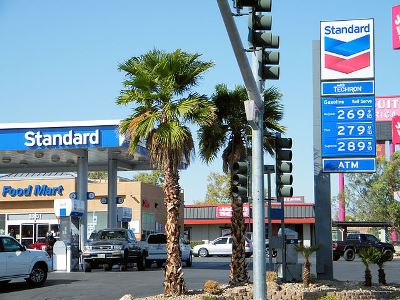
Workers around the country are now paying an average of $5 for a gallon of gasoline: a situation that only seems to be getting worse. Some economists are predicting that the price of a barrel of oil may surge to upwards of $175 from its current price of around $105 as of July 8. This is only comparable to the 2008 financial crisis when a barrel of oil peaked at a price of $147.
Some of this is due to the ongoing Russian invasion of Ukraine and sanctions put on Russia as economic warfare. Russia is one of the largest exporters of crude oil in the world, but some of this oil is now sanctioned, and forcibly taken off the market by the U.S. and NATO governments. Corporations are now taking advantage of this and using it as an excuse to price gouge workers at the gas pump.
Both OPEC and U.S.-based oil companies deliberately cut back on production and refining of oil to raise prices, even before the COVID-19 pandemic. Since then, the demand for oil has risen to pre-pandemic levels and oil companies stopped investing their record profits back into production; deciding that cashing in and paying the large shareholders is more important. Lack of planning and investment has only added to the current struggle working people are facing at the pump. On top of all of this, the world is on the brink of a recession as inflation continues to rise, increasing the cost of all goods.
Oil talks
The shortage of oil is by design, based on deliberate policies by corporations and capitalist governments to control production and also minimize access to alternatives such as public transit. Biden is slated to visit the Middle East in mid-July for a summit of the Gulf Cooperation Council in Saudi Arabia. Biden is quoted as saying he will not directly ask the Saudi regime to increase oil production: “That’s not the purpose of the trip.” But of course, it is the main purpose of a trip to the second largest oil-producing country in the world. The pressure of gas prices on top of inflation has pushed Biden to visit for negotiations despite calling Saudi Arabia a “pariah” state during his Presidential campaign.
Even if OPEC countries pump out increased amounts of oil, there’s no guarantee that increased supply alone will significantly lower oil prices. The Biden Administration has already begun to tap into its reserve supply of oil, but this only amounts to around one billion barrels a day and oil prices have remained inflated.
Neither Congress, Biden, nor state governments are doing anything around mass transit policies on a scale that will cut down on the demand for fuel and costs for workers. The summer travel season approaches, bringing an even higher demand for gas. Higher demand can mean higher fuel prices and further price gouging. Even with the global oil supply low, corporations are still raking in record profits by using their monopolies on fuel supplies and the lack of alternative transportation options for many workers, hurting workers who are still recovering from the ongoing COVID-19 pandemic and the recession it triggered.
If this trend of inflated fuel prices continues, the national average price of gas could surpass $6 a gallon. With the United States being extremely reliant on automobiles, many Americans don’t have reliable or affordable options for public transit. There is no incentive for corporations to reduce the price because they know workers have to pay regardless.
Fighting rising fuel prices means taking on the profit-hungry fossil fuel industry and the two corporate political parties, the Democrats and Republicans, who refuse to consider price controls or nationalization (public ownership) of the big oil companies. A strong workers’ movement could win price controls that block corporate price-gouging. It could also strive to take the fossil fuel industry into public ownership in order to distribute resources according to the needs of the people rather than squeezing every dollar out of workers for profit. With democratic control of the fossil fuel industry, we could then immediately take steps to reduce fossil fuel consumption and transition towards green transportation as part of a socialist solution to climate change.
